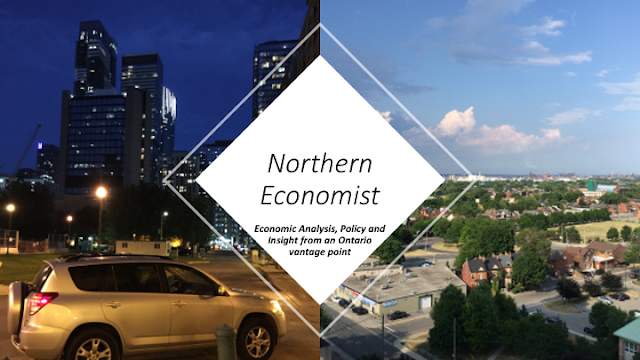The Northwest of Ontario is still gripped in throes of winter relative to southern Ontario, but spring is inevitably on its way along with a Spring Budget at Queen’s Park (April 28th) to be followed by a spring election in early June. The Northwestern Ontario Municipal Association (NOMA) will hold its annual conference and general meeting April 27-29 in Fort Frances and the meetings will overlap the budget date. There will undoubtedly be the traditional lament over the region’s needs especially in the aftermath of the pandemic, but the truth of the matter is that municipalities - even in Ontario's north - have generally done quite well financially during the pandemic as has the provincial government for that matter.
Municipalities generally run surpluses (or in the language of municipalities, positive variances) and the pandemic does not seem to have changed that. And, because of federal transfer supports and growing own source revenues, Ontario has seen provincial total revenues rise since 2017-18. Based on the Fiscal Reference Tables and the Ontario 2021 Fall Economic Statement, total revenues were $150.594 billion in 2017-18 and reached $164.893 billion in 2020-21. Fiscal year 2021-22 is forecast at $168.617 billion while by 2023-24 the forecast is for revenues of $178 billion.
If anything, the numbers will likely be revised again in the April 28th budget to show higher revenues than anticipated and a smaller projected deficit as even the Financial Accountability Office of Ontario (FAO) has already noted. For 2021-22, the FAO expects a $16.0 billion budget deficit, lower than the government outlook for a $20.5 billion deficit. By 2023-24, the FAO projects the deficit will decline to $2.8 billion, compared to the government outlook of $11.4 billion.
So, one can expect that with robust provincial revenue growth and an election in the wind, there will be plenty of spending or “investments” in projects and programs across the province as the province fans out its ministers and spending announcements as a sort of missionaria protectiva to secure as many seats as possible. Indeed, the spending has been underway since March and currently totals nearly 11 billion dollars. Some of these announcements are really tax expenditure or foregone revenue in the case of the refund and cancellation of vehicle registration fees (approximately $2.2 billion) as well as the gasoline and fuel tax cut to take effect this summer ($645 billion). Some are substantial infrastructure projects with billions of dollars for hospital and long-term care construction as well as highway projects.
In terms of specifics for northern Ontario municipalities to date, there are four announcements of note: 1) The industrial electricity subsidy for northern Ontario ($176 million), the refurbishing of GO Transit train coaches’ contract for Ontario northland North Bay ($109 million) and the contract to widen the Thunder-Bay to Nipigon highway ($107) and 4) Rural Broadband internet ($900 million) which one would expect a reasonable share should flow to the north. These are not inconsequential amounts or projects from a regional perspective and come on top of other announcements such $75 million for resumption of Ontario Northlander train service from Timmins to Toronto. Throw in money for more medical doctor training with the expansion of NOSM and you can see a deliberate effort to woo northern voters. Watching the opposition parties use the northern neglect line will be interesting given that many of the northern ridings are indeed held by the opposition and not the current government.
Of course, the budget next week will probably unveil even more spending initiatives given that revenues are likely higher than expected which means the government will be able to spend more and lower the deficit. As for the province’s $400 billion dollar debt and high net debt to GDP ratio? An election is coming, and an election is too important a time to worry about public finances as politicians have demonstrated since time immemorial. And besides, what politician would not want a future without challenges for their grandchildren especially when there is an election to win?
